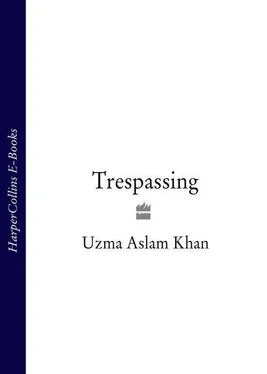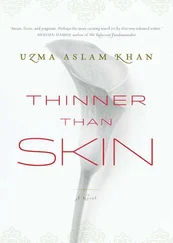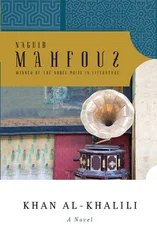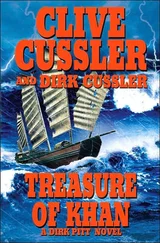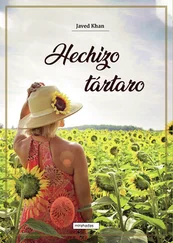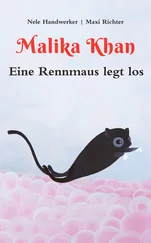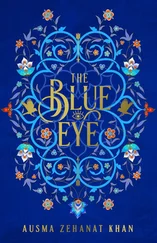The drop lingered, an amber tablet he rolled over two pale pink nipples, down the slope of her breasts, up the small mound of her torso, and down again, to the whiskers of her damp vagina. The scent of maple mingled with her equally heady odor, and then with a third more pungent smell, coming from the corner of his room in Karachi.
Daanish awoke in the middle of the night feeling he’d ridden a hurricane. He lay in bed, groaning. Ever since his return, his days had become a sequence of disjointed pictures. Now the pictures haunted his sleep too. It was as if the long flight back had never ended. He hadn’t landed. He was trapped, oscillating between time and space. He couldn’t stop. He could only do one thing: remember. His short life flickered before his eyes almost as if it were coming to an end, for surely, this is what the dying did. Before his father breathed his last breath, hadn’t he too remembered the ambergris perfume with which his son had once woken him?
As in his sleep, Daanish now noticed the biting stench in his room. He sat up. It came from the drawer. He walked toward it, blinking at the three cocoons bunched inside.
‘Which will it be?’ he asked again. They were half the size of his thumb and somehow resisted being separated. Two oozed a reddish liquid that stank of wood polish. He plucked the clean one. Carrying it downstairs, he passed Anu’s bedroom. Thankfully, she was asleep.
So as not to wake her, he softly shut the kitchen door behind him. Then he threw open a window, filled a pot with water and left it to boil.
Looking around, he remembered something. In the cupboard, Anu used to keep a cluster of terracotta lanterns. He opened it: yes, they were still there. He smiled. Filling one dainty, palm-shaped dia with oil, he put it on the windowsill and lit the wick. The flame wavered, casting shadows around him.
The water came to a boil. Daanish poured it into a shallow basin. The light danced on the water’s surface, arching its neck in steam. He dropped the cocoon inside.
Swiftly, the soft mass began to separate into threads. He caught hold of one very carefully with the tine of a fork and began twirling this strange spaghetti made of the finest hair. He found, to his astonishment, that he could keep twisting. The cocoon, now bobbing in the basin as a brown and shriveled nut, was wrapped in a single endless strand. He pulled and turned the fork, then pulled and turned again. It was like unwrapping a gift.
Afraid the fork would snap the strand prematurely, Daanish slipped the bundle off it and began winding the thread around his arm. He sweated profusely and his muscles ached. He dabbed his brow with the sleeve of his free arm.
Just when he felt his arm would drop, it stopped. A breeze blew out the lantern. A thin dawn pierced the kitchen. In the basin, the boiled cocoon was stripped bare. He’d retrieved the entire length of the yarn. It was as long as an artery, and as fine as a cut. He carried it gingerly upstairs.
Adjacent to the shed that housed the silkworms stood a shack with two rooms and a telephone. On days when it got too late for the long ride back into the city, Dia and her mother spent the night here. The shack was stocked with basic aids — towels, pots and pans, dry food, a tube of Macleans toothpaste — and even some of Dia’s storybooks. Water was collected in a bucket from the main outside, showers taken in the protective arms of mulberries.
When her father was alive, her parents had slept in one room, the children in the other. They’d cooked simple meals on a single burner, and at night, rolled out frayed quilts on the floor. The children’s excitement was augmented by their proximity to one of the world’s biggest graveyards, Makli Hill, just half a kilometer away. Once the parents were asleep, ghosts would rise and begin their lumbering trek down to the farm. Then Dia and her brothers took turns daring each other to step out in a darkness that was inconceivable in the city, even during loadshedding. This one had cold fingers, trailing hair, ancient venom.
She suffered terrible bouts of anxiety days before her night to be dared. When it came, her evil brothers gloated: ‘Take a cold shower, outside, now!’
Tiptoeing into the pit of blackness, she filled the bucket, shed her clothes, and stood as vulnerable as the day she came howling furiously into the world, like a purplish-red mulberry. Or so her father put it. It was comforting to know he slept soundly inside. She cast frequent glances at the door, into which she could dart if anything tried to grab her.
There were no shortcuts. She had to wet her hair, lather it with shampoo, rinse, soap herself from ear to toe, rinse again. And the entire time, she felt the wings of bats, the eyes of kings dead hundreds of years, and the screeching of those still alive.
Perhaps her terror of water had started then, years before her father’s drowning.
Perhaps she was dreaming of the drowning because it happened five years ago to the day.
She was bathing in utter darkness, when all around appeared a hundred geese. They bred gold cocoons. The cocoons began to unravel. Out jumped a hundred blue and battered feet. They were her father’s feet, her father who’d been wrung back to life, and they danced a bloody dance, quacking like rubber ducks. The blackness began to ooze. It condensed into bullets. The bullets scattered like beads, only they weren’t bullets or beads but her father’s small, shining eyes. Eyes that must have cried at the end. Plucked eyes, following the words in her storybooks as she read to him. And then the blackness ceased oozing and scattering. It began to pour. It was the river, and it was time to haul his body out of it.
She screamed.
‘Shh! Dia, it’s me. Shh! It’s all right.’
She sat up on the floor of the shack, keening. A woman smoothed her hair. She’d have liked it to be Nini. It wasn’t. It was Sumbul, the cook’s daughter. She let herself be rocked. Gradually, the nightmare flew away. And then there was nothing but a breeze, and Sumbul’s maternal embrace.
Dia took a deep breath and laughed weakly. ‘Your fifth child is on the way. You have a lifetime of comforting ahead of you.’
‘Silly girl,’ cooed Sumbul.
‘Thank you,’ said Dia, gently pulling away. ‘I’m better now.’
‘I was just coming to wake you. I think it might be time.’
Dia frowned, disoriented. And then she remembered why she’d stayed the night at the shack.
Last afternoon, she’d been making the rounds through the section of the shed where a few select pupae were kept. These would eat their way out to enter the fourth and final stage of their life as mature imagoes. Their eggs would begin the cycle again. She’d been wondering which cocoon from this batch would yield the first imago when, peering closely, she found two that had already begun to open. At last, after years of trying to witness the birth of silk moths, Dia felt she might have a chance. She hurriedly called Sumbul. Together, they watched as the telltale liquid began to drip. Perhaps within the next twelve hours, the metamorphosis would be complete.
Dia had called her mother at home to say she was finally going to watch the process entirely. But Riffat was concerned about security — Dia had never spent the night alone at the farm. Dia pleaded she wouldn’t be alone. Sumbul’s mother-in-law was away, so she could share the overnight vigil. Four guards, including Sumbul’s two brothers Shan and Hamid, patrolled the grounds. And half a kilometer away, the cook’s brother patrolled the graves of Makli Hill. Her mother reluctantly consented.
Читать дальше
Конец ознакомительного отрывка
Купить книгу
